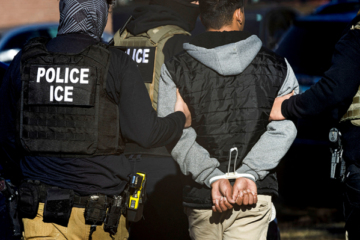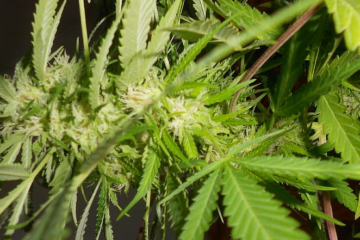What is the bill?
The bill, AB 374, would have allowed local governments to authorize marijuana consumption lounges to prepare and sell non-cannabis foods and soft drinks at their facilities. The legislation would have further explicitly authorized “live musical or other performances on the premises of a retailer or microbusiness…in the area where the consumption of cannabis is allowed, and the sale of tickets for those performances.”
The bill was passed by the Assembly in June 2023 and by the Senate in July 2023, but was vetoed by Governor Gavin Newsom on October 9, 2023. Newsom said he was concerned that the bill could undermine California’s long-standing smoke-free workplace protections and that he wanted to address this concern in subsequent legislation.
Why did the bill sponsor support it?
Assemblymember Matt Haney (D), the bill sponsor, said the bill “was really about fairness and supporting businesses that follow the rules.” He argued that there was no good reason from an economic, health, or safety standpoint that the state should make it illegal for people to enjoy legal cannabis in the company of others.
Haney also said that he was not aware of any concerns from the health department over the past seven months that they worked on this bill. He claimed that consumption lounges where smoking takes place already exist under Prop 64, which legalized recreational marijuana in California.
What are some alternatives to cannabis cafes?
Haney said he would continue to work with other lawmakers and stakeholders to find a solution for cannabis cafes. He suggested some possible alternatives, such as allowing existing dispensaries to offer food and beverage sales, creating a new category of licensed social consumption venues, or allowing local governments to regulate cannabis cafes as they see fit.

He also said he would support a separate bill, AB 374-A, which would create a workgroup and plan for veterans’ therapeutic access to psilocybin mushrooms. Psilocybin is a psychedelic compound found in some mushrooms that has been shown to have potential benefits for treating mental health conditions such as PTSD and depression.
How do other states regulate marijuana consumption?
Cannabis cafes are not unique to California. Several other states have also legalized or decriminalized marijuana consumption lounges or similar facilities. For example:
- Colorado: In March 2021, Colorado became one of the first states to allow social consumption lounges where adults can consume up to one ounce of marijuana with food or drinks purchased from licensed retailers. The state has more than 100 licensed social consumption venues across its counties.
- Nevada: In July 2021, Nevada became another state to legalize social consumption lounges where adults can consume up to one ounce of marijuana with food or drinks purchased from licensed retailers. The state has more than 40 licensed social consumption venues across its counties.
- Oregon: In September 2020, Oregon became one of the first states to decriminalize psilocybin mushrooms for personal use. Adults can possess up to one ounce of psilocybin mushrooms without facing criminal charges or penalties.
- Washington: In November 2018, Washington became one of the first states to decriminalize psilocybin mushrooms for personal use. Adults can possess up to one ounce of psilocybin mushrooms without facing criminal charges or penalties.
What are some challenges and benefits of cannabis cafes?
Cannabis cafes have both potential benefits and challenges for consumers, businesses and society.
Some possible benefits are:
- They could provide a safe and comfortable environment for people who want to enjoy legal cannabis with others.
- They could create new opportunities for entrepreneurs who want to open cannabis cafes.
- They could generate tax revenue for local governments from licensing fees and sales taxes.
- They could reduce illicit market competition by offering legal alternatives.
Some possible challenges are:
- They could pose health risks if people consume too much cannabis or mix it with other substances.
- They could attract underage people who may be curious about cannabis or influenced by peer pressure.
- They could increase fire hazards if people smoke indoors near flammable materials.
- They could conflict with existing laws or regulations regarding smoking bans, noise levels, zoning restrictions or public safety.
California’s governor has vetoed a bill that would have legalized cannabis cafes in the state. However, some lawmakers are still pushing for a different approach that would allow local governments to regulate these facilities as they see fit. Meanwhile, other states have already legalized or decriminalized marijuana consumption lounges or similar facilities.
Cannabis cafes are an emerging trend in the legal cannabis industry that could offer new possibilities for consumers who want to enjoy legal cannabis with others in a social setting.



